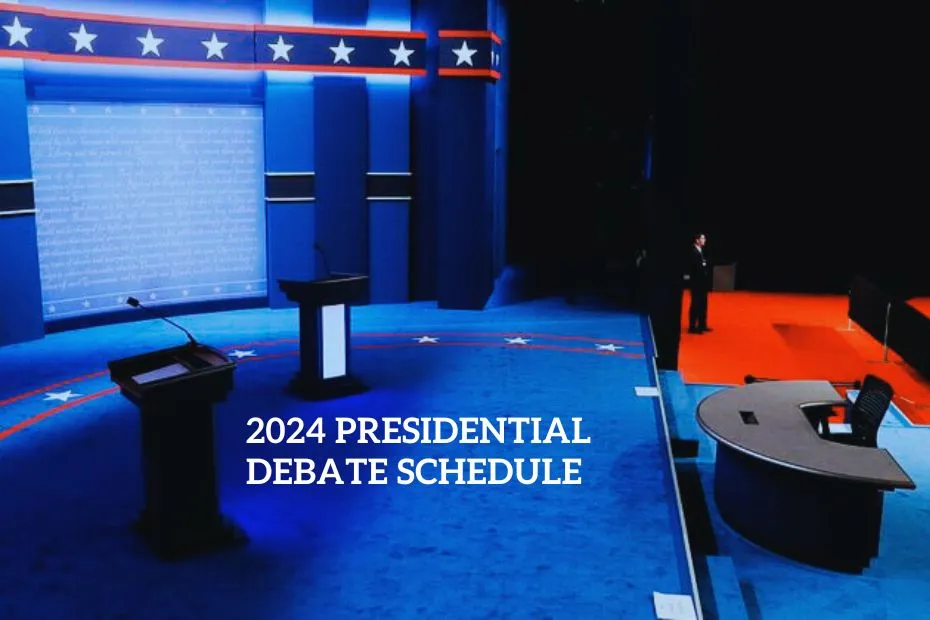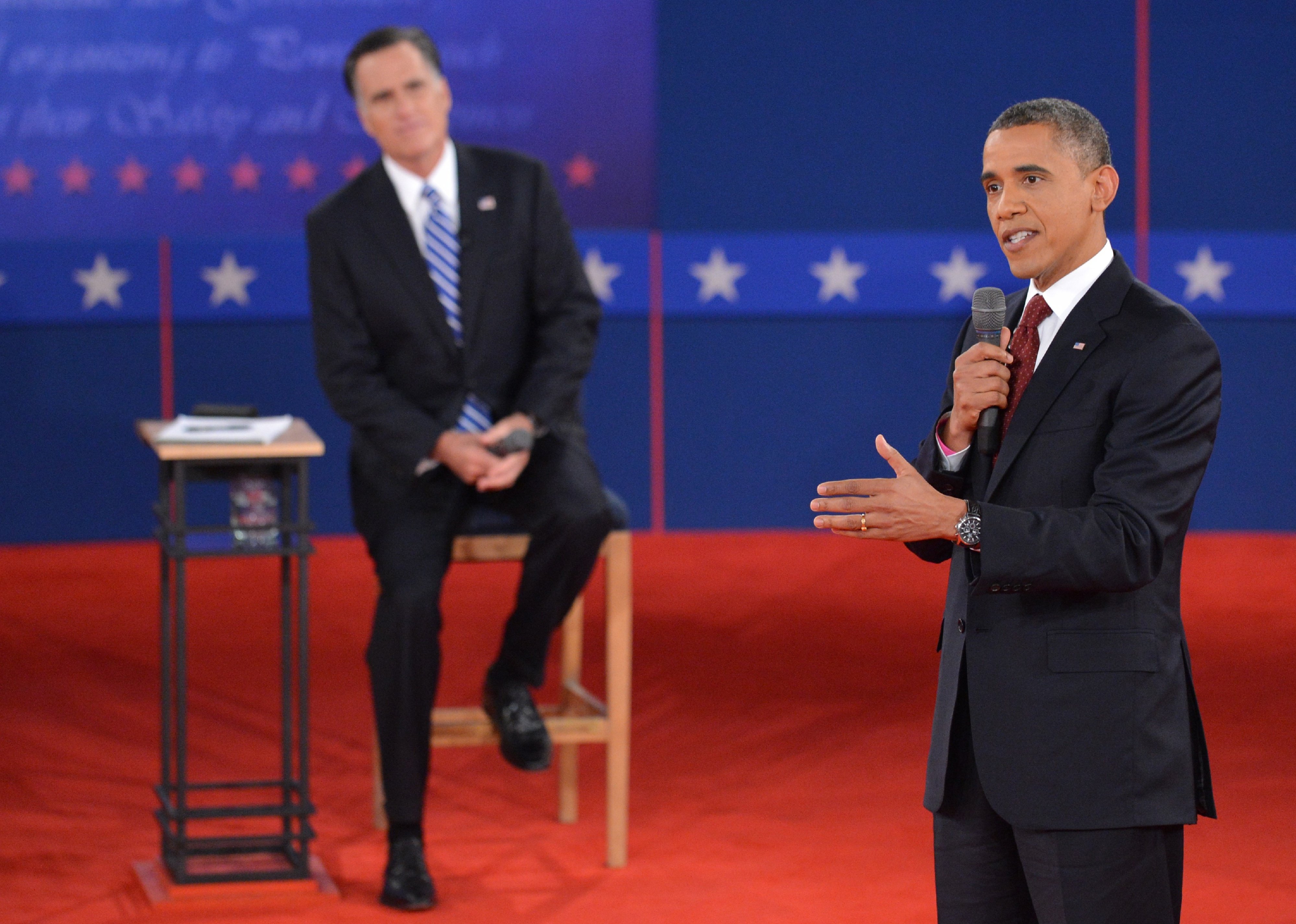Historical Context of Presidential Debates: Presidential Debate Dates

Presidential debates have become a cornerstone of American democracy, offering voters a direct and often heated exchange of ideas between candidates vying for the highest office. Their evolution from informal gatherings to televised spectacles reflects the changing landscape of American politics and the evolving role of media in shaping public opinion.
The Early Years: Informal Exchanges
The earliest presidential debates were informal and often took place in the form of public speeches or town hall meetings. These events were characterized by their lack of structure and the limited role of media. In the 1858 Senate race between Abraham Lincoln and Stephen Douglas, a series of seven debates across Illinois attracted widespread attention, establishing a precedent for public confrontations between candidates.
The Rise of Television: The Kennedy-Nixon Debates
The 1960 presidential election marked a pivotal moment in the history of presidential debates. The televised debates between John F. Kennedy and Richard Nixon brought the event into the homes of millions of Americans, transforming the political landscape. The impact of television was undeniable, as Kennedy’s charisma and youthful appearance contrasted sharply with Nixon’s more reserved demeanor.
The Commission on Presidential Debates
The Commission on Presidential Debates (CPD) was established in 1987 to oversee the organization and conduct of presidential and vice-presidential debates. The CPD is a non-partisan, non-profit organization that works to ensure the fairness and impartiality of the debates. Its creation reflected the growing importance of these events in the electoral process and the need for a neutral body to manage their logistics.
The Impact of Social Media
In the digital age, social media has profoundly impacted the way presidential debates are conducted and consumed. The rise of Twitter, Facebook, and other platforms has created new avenues for candidates to interact with voters and for the public to engage in real-time discussions about the debates. The immediacy and accessibility of social media have also made it easier for voters to share their opinions and reactions, potentially influencing public perception of the candidates and their performance.
Key Moments in Debate History
- The 1960 Kennedy-Nixon Debates: The first televised presidential debates, which showcased the power of television to influence public opinion.
- The 1980 Carter-Reagan Debates: The first debates to feature a third-party candidate, John Anderson, who was allowed to participate in some of the debates.
- The 1992 Clinton-Bush-Perot Debates: The first debates to feature three candidates, highlighting the potential for multi-candidate races to impact the debate format.
- The 2004 Bush-Kerry Debates: The first debates to feature a moderator who actively questioned the candidates and challenged their responses.
- The 2016 Trump-Clinton Debates: The first debates to feature a candidate who frequently deviated from the format and challenged the norms of political discourse.
Impact of Debate Dates on the Election Cycle

The dates of presidential debates play a pivotal role in shaping the dynamics of the election cycle. Their timing can influence voter turnout, media coverage, and campaign strategies, ultimately impacting the narrative of the election.
Influence on Voter Turnout
The timing of debates can significantly influence voter turnout. Debates often generate considerable media attention, which can pique the interest of undecided voters and encourage them to participate in the election. For instance, a debate held close to the election day can motivate voters who were previously apathetic to cast their ballots. Conversely, debates held early in the campaign cycle may have a less pronounced impact on turnout, as voters may not have fully engaged with the election process.
Impact on Media Coverage
Debates are major news events that attract extensive media coverage. The media’s focus on debates can shape public perception of the candidates and their positions on various issues. Debates can provide valuable insights into the candidates’ personalities, communication skills, and policy stances. The media’s interpretation and analysis of the debates can influence how voters perceive the candidates and their respective campaigns.
Influence on Campaign Strategies
Candidates carefully strategize their campaigns around the debate schedule. The timing of debates can dictate the pace of a campaign, influencing the topics and issues that candidates prioritize. For example, a candidate may focus on a particular issue in the weeks leading up to a debate where that issue is likely to be discussed. Additionally, debates can provide candidates with opportunities to highlight their strengths and address their weaknesses, allowing them to refine their messaging and campaign strategies.
Shaping the Election Narrative, Presidential debate dates
Debates can significantly shape the narrative of the election cycle. A strong performance in a debate can boost a candidate’s momentum and solidify their position in the race. Conversely, a poor performance can damage a candidate’s reputation and undermine their campaign. Debates can also serve as catalysts for major shifts in public opinion, potentially altering the trajectory of the election. For example, a debate performance that goes viral can significantly impact a candidate’s standing in the polls.
Analyzing Debate Performance and Outcomes
Presidential debates are pivotal events in the electoral cycle, offering a platform for candidates to showcase their policies, personalities, and leadership qualities to a wide audience. Analyzing the performance of candidates in these debates can provide insights into their strengths and weaknesses, as well as the potential impact on voter perceptions and electoral outcomes.
Key Factors Contributing to Successful Debate Performance
The success of a debate performance hinges on a delicate balance of factors, each playing a crucial role in shaping the audience’s perception of the candidate.
- Message Clarity: A successful debater articulates their message with precision and clarity. They avoid jargon and complex terminology, instead opting for straightforward language that resonates with the average viewer. Effective messaging is characterized by brevity, concision, and a focus on key points, ensuring that the audience grasps the candidate’s stance on crucial issues.
- Audience Engagement: A successful debate performance transcends mere information delivery. Candidates must engage the audience, capturing their attention and fostering a connection. This can be achieved through effective use of body language, eye contact, and a genuine passion for the subject matter. A charismatic and relatable demeanor can significantly enhance a candidate’s appeal to voters.
- Strategic Responses: Debates are not merely platforms for delivering prepared speeches; they are dynamic interactions where candidates must respond to their opponents’ arguments and defend their own positions. Successful debaters exhibit quick thinking, strategic responses, and the ability to anticipate and counter their opponents’ attacks. This requires a deep understanding of the issues, a mastery of the art of persuasion, and the ability to remain calm under pressure.
Impact of Debate Performance on Voter Perceptions and Electoral Outcomes
Debate performances can have a significant impact on voter perceptions and, ultimately, electoral outcomes. The following points highlight the potential influence of these events:
- Shifting Voter Preferences: Debates can influence voter preferences, particularly among undecided voters. A compelling performance can sway undecided voters towards a candidate, while a weak performance can reinforce existing doubts or even alienate potential supporters. For example, in the 2016 US presidential election, some polls suggested that the first debate between Hillary Clinton and Donald Trump had a significant impact on voter preferences, with Trump benefiting from a perceived victory.
- Reinforcing Existing Beliefs: Debates can also serve to reinforce existing beliefs among voters. A candidate who effectively articulates their positions and responds convincingly to challenges may solidify support among their base, further polarizing the electorate. Conversely, a candidate who stumbles or fails to articulate their message clearly may lose ground among their supporters.
- Impact on Media Coverage: Debate performances have a significant impact on media coverage. Candidates who deliver memorable moments or engage in heated exchanges often receive extensive media attention, shaping public perception and influencing voter narratives. This can be particularly influential in the weeks following a debate, as media outlets dissect and analyze the performances, highlighting key moments and potential turning points in the campaign.
Debates and Shaping Public Understanding of Candidates
Presidential debates play a crucial role in shaping the public’s understanding of candidates’ positions and qualifications. These events provide a platform for candidates to:
- Articulate Policy Positions: Debates offer candidates the opportunity to articulate their policy positions on a wide range of issues, from economic policy to foreign affairs. This allows voters to compare and contrast the candidates’ views, helping them to make informed decisions.
- Demonstrate Leadership Qualities: Beyond policy positions, debates offer a glimpse into candidates’ leadership qualities. Their ability to respond to challenges, articulate their vision, and engage with their opponents provides voters with insights into their temperament, decision-making skills, and overall suitability for the office.
- Engage in Direct Dialogue: Debates provide a platform for direct dialogue between candidates, allowing voters to witness their interaction and assess their ability to work collaboratively. This can be particularly important in an era of political polarization, where voters seek candidates who can bridge divides and work effectively with opposing viewpoints.
The presidential debate dates are always a hot topic, and this year is no exception. It’s fascinating to see how these debates shape the national conversation and influence voters’ choices. While the national spotlight is on the presidential race, it’s important to remember the crucial role local leaders play in shaping our communities.
Take, for example, mayor tiffany henyard , whose leadership is making a tangible difference in her city. The presidential debates may grab headlines, but it’s these local leaders who often have the most direct impact on our daily lives.
The presidential debate dates are always a hot topic, especially when you consider the complex geopolitical landscape. For example, the ongoing tensions between Iran and Israel, as documented in this comprehensive history of Iranian-Israeli relations , often play a significant role in the candidates’ foreign policy stances.
These debates provide a platform for the candidates to address these issues, and their responses can have a significant impact on the election.

